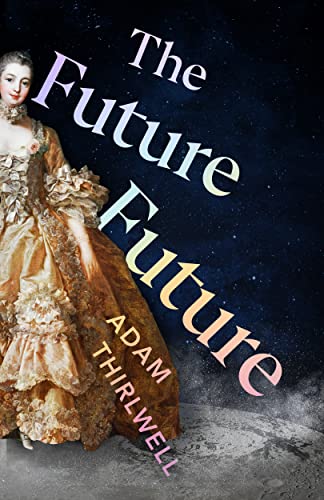The Future Future
It is quite a challenge to succinctly summarise a novel that does not have much of a plot. Literary? Yes, Clever? well, that’s possible. Readable and engaging? – no, I can’t say it is. The book is ostensibly mostly set in late 18th-century France, on the brink of revolution (with excursions to the United States and the moon), and the main character is Celine, recently married aged just nineteen, charismatic and beautiful, struggling to survive in a harshly misogynist, deceitful society. But the historical context is completely absent, and we could be in just about any time, or indeed any place.
The publisher describes the book as “a historical novel like no other”. And this is true in the same way that if you got to your local café that promotes a new offering of coffee like no other, solely consisting of a blend of cold custard and anchovies – well, it can’t really be described as coffee at all. When writing a review, I usually avoid reading assessments of the book in the press or journals until after my review has been completed, as I do not wish to be influenced by other opinions or perspectives. However, with Thirlwell’s new novel I felt I needed to see how others have responded to this puzzling work of fiction whilst drafting my own evaluation. The Times Literary Supplement described it as “phantasmagoric” and “complex and brilliant”. Well, the story and content are not terribly complex, and I would certainly not apply the term ‘brilliant’ as a description. Not a book to lovingly keep on one’s shelves, nor can I recommend it as a good exemplar of a historical novel.










